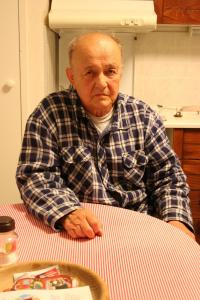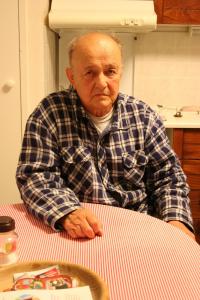“As a student, I used to be leftist, but I became imprisoned precisely for being leftist.”

Download image
Jan Čermák was born October 26th, 1933 in Prague in the family of brigadier general Ing. Jan Čermák. The family lived in Prague, but in 1950 they had to leave the city because the father was convicted of endangering government secret in a fabricated trial and was sentenced to one year of imprisonment. The father’s office was suspended, his state pension was cancelled and the family was ordered to vacate their flat without being provided with alternative housing. The family (mother and Jan) left Prague and moved to Myšlín near Říčany. Jan had to quit his studies at a secondary school in Prague and transfer to another school in Říčany. In 1953 he started his military service, the first year with the cavalry division, the second with infantry. In 1955 he left the army and began to study law. After one year of his university studies he wrote a paper criticizing socialist thinking and circulated this thesis among his classmates. Two weeks afterwards he was arrested. Jan was sentenced to two years of imprisonment in 1958. He spent eight months in the Ruzyně prison and then was sent to Bytíz (Příbram region) to an uranium mine. His father died shortly after Jan’s release in 1960. In 1965 Jan became an employee of Czech Insurance Company. He finished his law studies and continued to work in the insurance company as a lawyer (assessor). In the 1980s he worked in the Prague Transportation centre, and in 1983 he was offered a position of a lawyer in the Office of the head architect, where he has stayed till his retirement in 2002.

